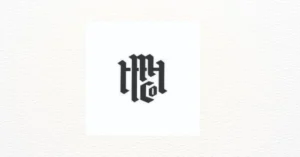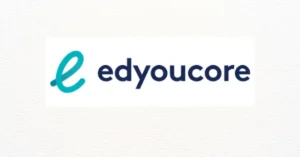In an increasingly digitized financial ecosystem, consumer debt has not only expanded—it has diversified. From unpaid medical bills and credit card balances to student loans and utility arrears, millions of Americans carry debt in some form. For many, the first time they hear the name Syncom Collections is when they receive a phone call or letter regarding an overdue account. But what exactly is Syncom Collections? How does it operate? And most importantly, what rights do consumers have when faced with collection activity?
This article offers a comprehensive, up-to-date exploration of Syncom Collections and the modern practices surrounding debt recovery—where regulatory pressure, consumer awareness, and technology are reshaping the rules of engagement.
What Is Syncom Collections?
Syncom Collections is a third-party debt collection agency. That means it works on behalf of creditors (such as banks, hospitals, or service providers) to collect unpaid debts that have either been sold to them or referred to them for collection.
Syncom Collections is part of a vast, regulated industry. It functions under the oversight of federal and state laws, particularly:
- The Fair Debt Collection Practices Act (FDCPA)
- The Fair Credit Reporting Act (FCRA)
- Consumer Financial Protection Bureau (CFPB) guidelines
The company operates by contacting consumers via phone, mail, email, and—more recently—text message, to notify them of balances owed and attempt resolution.
How Syncom Collections Gets Your Information
If you’ve received communication from Syncom Collections, it’s usually because:
- A creditor you owed money to sold or transferred your debt to them
- A creditor hired them to act as a third-party collections agent
In either case, Syncom gains access to your information from the original creditor, which may include:
- Your name and contact details
- The amount owed and the date of default
- The account or reference number
This information is subject to verification and must be disclosed to you upon request.

Common Types of Debt They Collect
Debt collection agencies like Syncom often specialize in specific sectors. Syncom Collections reportedly works with:
- Telecommunications and cable service bills
- Medical and healthcare-related debt
- Personal loans or store credit accounts
- Student loan servicing
- Auto loan deficiencies after repossession
Understanding what kind of debt they collect helps consumers identify the legitimacy of a claim.
Your Rights Under the FDCPA
The Fair Debt Collection Practices Act is the primary shield protecting consumers from abusive or unfair collection tactics. Under the FDCPA, Syncom Collections (or any other collector) must:
- Identify themselves clearly in all communications
- Verify the debt if you dispute it within 30 days
- Avoid harassment, threats, or abusive language
- Respect communication preferences, including time and method
- Not misrepresent the amount or status of the debt
- Not contact third parties, except under very limited conditions
What to Do If Contacted:
- Request validation: Always ask for written proof of the debt
- Document everything: Keep a record of communications
- Dispute if needed: You have the right to dispute part or all of the debt in writing
How Syncom Contacts Consumers
While phone calls remain common, modern agencies—including Syncom—use various communication channels:
- Mailed letters and account statements
- Text messages with opt-out capabilities
- Secure portals for digital payment
- Emails detailing next steps
All communications must comply with disclosure requirements and consumer protections.
The Collection Process: Step by Step
- Initial Contact: You receive notice of the debt via mail or phone
- Verification Window: You have 30 days to request validation
- Negotiation Phase: Payment plans, settlement offers, or lump sum deals may be offered
- Credit Reporting: The debt may be reported to credit bureaus if unresolved
- Escalation: In rare cases, unresolved debts could lead to legal action
Many collection efforts do not result in lawsuits. Most aim for negotiation.
How Debt Affects Your Credit
Debt placed with Syncom Collections may appear on your credit report as a collection account. The impact includes:
- Lower credit scores
- Difficulty securing future loans or mortgages
- Higher interest rates on approved credit
However, recent changes in credit scoring models (like FICO 9 and VantageScore 4.0) have begun to reduce the weight of paid or medical collections on scores.
Payment Options and Resolution
Syncom typically offers flexible payment solutions:
- Full balance payoff
- Monthly installments
- Settlements for less than the owed amount
Before paying:
- Get the agreement in writing
- Confirm whether the account will be marked as “Paid in Full” or “Settled”
- Ensure the debt will be removed or updated on your credit report
Potential Red Flags and Consumer Caution
While Syncom Collections is a legitimate agency, the rise of scams impersonating collection firms means consumers must be cautious. Look out for:
- Demands for payment via prepaid debit cards or wire transfers
- Refusal to send written documentation
- Calls that threaten arrest or jail
Always verify:
- The company’s license or registration with your state
- Contact details via their official website
- Whether the collector knows your original creditor
Consumer Complaints and Resolution Channels
Syncom Collections, like all agencies, receives complaints—some substantiated, some not. Common themes include:
- Disputed debt amounts
- Harassment or repeated calls
- Misreporting on credit files
You can report complaints to:
- Consumer Financial Protection Bureau (CFPB)
- Better Business Bureau (BBB)
- State Attorney General’s Office
Always start by documenting the issue and contacting Syncom directly to resolve it.
Debt Collection and Mental Health
Debt can be more than financial—it’s emotional. Anxiety, embarrassment, and fear are common responses to collection notices.
Agencies like Syncom are increasingly aware of these dynamics and are:
- Training staff in empathy and de-escalation
- Offering consumer support resources
- Encouraging early resolution to minimize harm
Still, consumers should:
- Seek nonprofit credit counseling
- Avoid isolation or shame
- Set boundaries on communication frequency
The Bigger Picture: Why Debt Collection Is Changing
The collection industry is undergoing transformation:
- Digital platforms are replacing physical letters
- Regulations are increasing transparency requirements
- Consumer education is improving negotiation outcomes
Companies like Syncom must now balance compliance, tech-savvy operations, and emotional intelligence in daily practice.
What to Know Before You Pay
Before resolving a debt with Syncom Collections, know your rights and options:
- Validate the debt: Always verify before paying
- Understand the impact: Confirm what happens to your credit
- Negotiate if needed: Propose a repayment plan that works for your budget
Request all terms in writing and avoid paying in ways that don’t provide a receipt.
Alternatives and Legal Support
If you feel overwhelmed or treated unfairly:
- Contact a nonprofit credit counselor
- Speak with a consumer law attorney (especially if being sued)
- Consider debt settlement firms only as a last resort
Know that bankruptcy is also a legal option in severe cases—but one with significant long-term impact.
Final Thoughts: Empowerment Through Information
Receiving a call from Syncom Collections can feel intimidating—but information is your greatest tool. Understand the process, assert your rights, and use every communication as an opportunity to reclaim control.
Whether you resolve the debt in full, negotiate terms, or dispute its validity, remember: You’re not powerless in the face of collections. Agencies like Syncom are part of a regulated system that increasingly values transparency, digital access, and humane practice.
For more information, click here.









